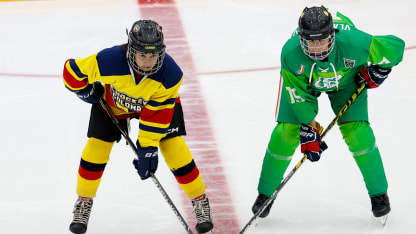For the Colombia women to play outside of the continent for the first time and win a championship is a huge accomplishment, said Tina Kampa, a defenseman/forward who was an assistant captain in Kuwait City.
"It was interesting to see where other countries that aren't in Latin America are hockey-wise and how we stack up against countries that do have ice rinks," said Kampa, a former Bemidji State University defenseman who was born in Bogota, raised in Minnesota and is director of hockey operations for Dartmouth College's NCAA Division I women's team.
"It was really telling, and I just tell our players all the time that I'm proud of them, the work that they put in," Kampa said. "It's showing that they're very committed to the game and that, given the opportunity of ice, the sky's the limit."
The Development Cup was established in 2017 for IIHF members unable to compete in the international governing body's world championships because they don't meet some of the organization's regulations, such as having a regulation-size ice rink in-country.
Colombia has been an IIHF associate member since 2019.
The Colombian Ice Hockey Federation has sought to attract government or private investment in a rink in-country by performing well against other Latin American and Caribbean countries and territories in similar circumstances in the Amerigol LATAM Cup ice hockey tournaments.
The Florida Panthers have hosted the LATAM Cup at their practice facility in Coral Springs, Florida, since 2018. The Dallas Stars hosted the first Amerigol Spring Classic in March in Famers Branch, Texas. They'll host the tournament in March 2023 in Dallas, adding a women's division.
Like Colombia, participating countries like Argentina, Brazil, Chile, Puerto Rico and Venezuela don't have rinks. To compensate, players keep their skills sharp by playing inline hockey.




















